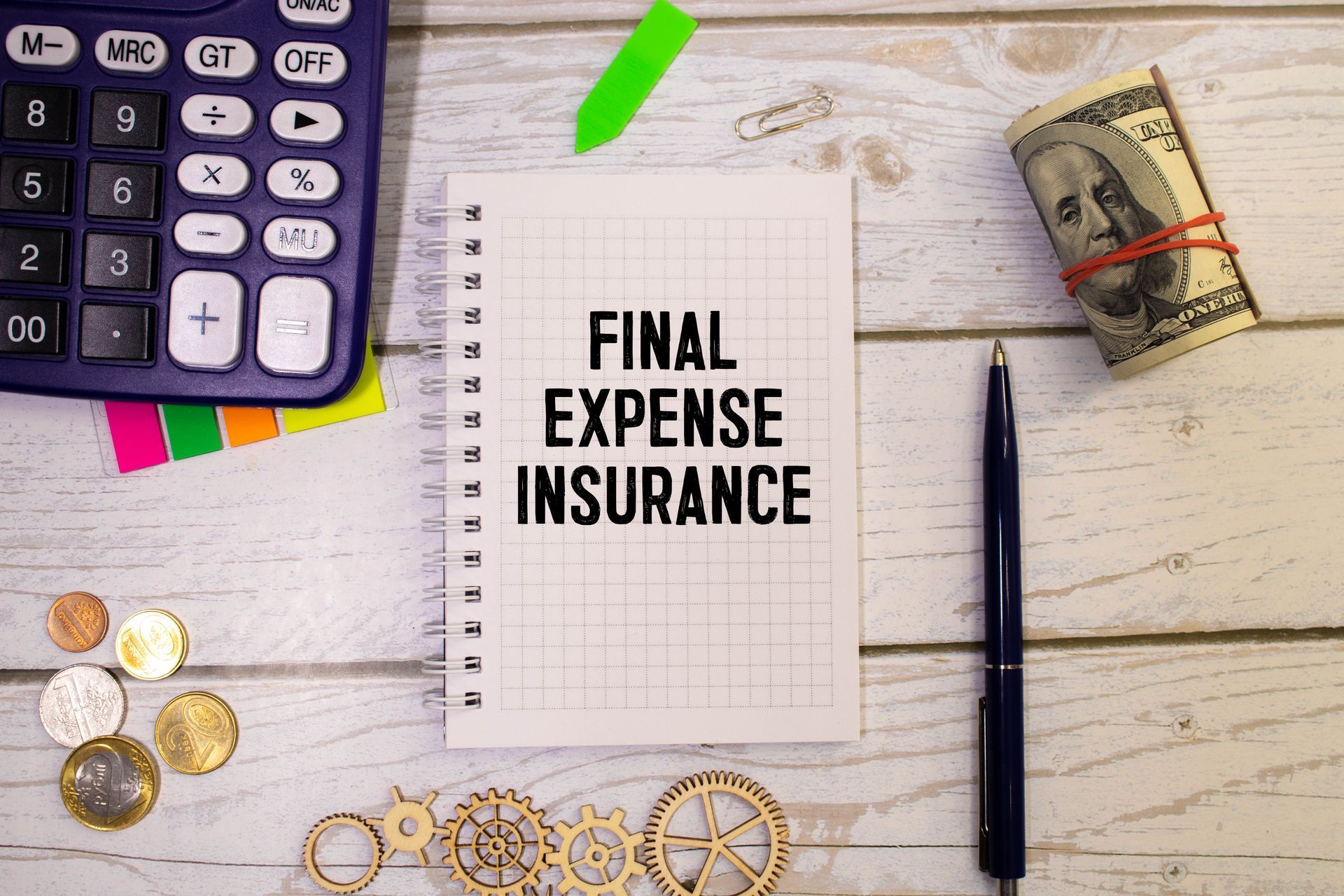Life Insurance
Common Types of Life Insurance
Term Life Insurance
Term life insurance or term assurance is life insurance which provides coverage at a fixed rate of payments for a limited period of time, the relevant term. After that period expires, coverage at the previous rate of premiums is no longer guaranteed and the client must either forgo coverage or potentially obtain further coverage with different payments or conditions. If the life insured dies during the term, the death benefit will be paid to the beneficiary. Term insurance is the least expensive way to purchase a substantial death benefit on a coverage amount per premium dollar basis over a specific period of time.
Whole Life Insurance
Whole life insurance, or whole of life assurance, is a life insurance policy that remains in force for the insured's whole life and requires (in most cases) premiums to be paid every year into the policy.
Universal Life Insurance
A type of permanent life insurance. Under the terms of the policy, the excess of premium payments above the current cost of insurance is credited to the cash value of the policy. The cash value is credited each month with interest, and the policy is debited each month by a cost of insurance (COI) charge, as well as any other policy charges and fees which are drawn from the cash value, even if no premium payment is made that month. Interest credited to the account is determined by the insurer, but has a contractual minimum rate of 2%. When an earnings rate is pegged to a financial index such as a stock, bond or other interest rate index, the policy is an "Equity Indexed Universal Life" contract.
Variable Universal Life Insurance
Variable Universal Life Insurance is a type of life insurance that builds a cash value. In a VUL, the cash value can be invested in a wide variety of separate accounts, similar to mutual funds, and the choice of which of the available separate accounts to use is entirely up to the contract owner. The 'variable' component in the name refers to this ability to invest in separate accounts whose values vary—they vary because they are invested in stock and/or bond markets. The 'universal' component in the name refers to the flexibility the owner has in making premium payments. The premiums can vary from nothing in a given month up to maximums defined by the Internal Revenue Code for life insurance.
Contact us to learn more about the right life insurance for you.
What is Disability Insurance?
Disability Insurance, often called DI or disability income insurance, or income protection, is a form of insurance that insures the beneficiary's earned income against the risk that a disability creates a barrier for a worker to complete the core functions of their work.
For example, the worker may suffer from an inability to maintain composure in the case of psychological disorders or an injury, illness or condition that causes physical impairment or incapacity to work. It encompasses paid sick leave, short-term disability benefits (STD), and long-term disability benefits (LTD).
Statistics show that in the US a disabling accident occurs on average once every second. In fact, nearly 18.5% of Americans are currently living with a Disability, and 1 out of every 4 persons in the US workforce will suffer a disabling injury before retirement.
Types of Disability Insurance
Individual Disability Insurance
Those whose employers do not provide benefits, and self-employed individuals who desire disability coverage, may purchase policies. Premiums and available benefits for individual coverage vary considerably between companies, occupations, states and countries. In general, premiums are higher for policies that provide more monthly benefits, offer benefits for longer periods of time, and start payments of benefits more quickly following a disability claim. Premiums also tend to be higher for policies that define disability in broader terms, meaning the policy would pay benefits in a wider variety of circumstances.
High-limit Disability Insurance
High-limit disability insurance is designed to keep individual disability benefits at 65% of income regardless of income level. Coverage is typically issued supplemental to standard coverage. With high-limit disability insurance, benefits can be anywhere from an additional $2,000 to $100,000 per month. Single policy issue and participation (individual or group long-term disability) coverage has gone up to $30,000 with some companies.
Key-person Disability Insurance
Key Person Disability Insurance provides benefits to protect a company from financial hardship that may result from the loss of a key employee due to disability. The company can use the benefits to hire a temporary employee should the disabled employee's disability appear to be short-term. In the case of permanent disability, benefits are used to help defray costs related to hiring a replacement, including recruitment, training, startup, loss in revenue and unfunded salary continuation costs.
Business Overhead Expense Disability Insurance
Business Overhead Expense (BOE) coverage reimburses a business for overhead expenses should the owner experience a disability. Eligible benefits include: rent or mortgage payments, utilities, leasing costs, laundry/maintenance, accounting/billing and collection service fees, business insurance premiums, employee salaries, employee benefits, property tax, and other regular monthly expenses.
Contact us to learn more about the disability insurance coverage for you.
More About Final Expense Coverage
Final Expense insurance is a basic issue life insurance policy that covers people until they reach 100 years old. It is quite similar to universal life insurance and is sometimes referred to as graded life or burial insurance with easy issue permanent coverage.
As an inexpensive insurance choice, final expense coverage can be used to cover the funeral and burial costs of the policy holder. Most people who do not want to place a hardship or burden their families with these burial and funeral costs will take out burial insurance polices.
Burial premiums can begin with higher costs at first than other forms of insurance since they include cash value features. An important advantage of burial premiums is that they are fixed, which means they remain the same even if your health deteriorates.
Final Expense coverage can pay for the casket, funeral service, visitation/viewing, hearse, digging and filling the grave, the actual cemetery plot, or burial vault or grave liner, minister, headstone, flowers, and other expenses related directly to named insured's funeral.
Contact us to learn more about the right final expense coverage for you.
What is a Financial Planner?
A financial planner or personal financial planner is a professional who prepares financial plans for people. These financial plans often cover cash flow management, retirement planning, investment planning, financial risk management, insurance planning, tax planning, estate planning and business succession planning for business owners.
How Much Renters' Insurance Do I Need?
Here are a few of the financial products we assist clients with:
- Annuities - Fixed Annuities, Fixed Index Annuities, Income Annuities, Annuity Living Benefits
- IRAs - Rollover IRAs, Traditional IRAs, Roth IRAs, IRAs for Spouses, SEP IRAs, SIMPLE IRAs
- Life Insurance - Term Life Insurance, Universal Life Insurance, Indexed Universal Life Insurance, Variable Universal Life Insurance, Survivorship Life
- Workplace Retirement Plans - 401k Plans, 401a Plans, 403b Plans, 457 Plans, SEP IRAs, SIMPLE IRAs
- College Savings Plans - 529 Plans, Coverdell Education Savings Plans, UGMA and UTMA Custodial Accounts
- Employee Benefits Plans - Critical Illness, Accident Insurance, Group Life Insurance, Group Disability Insurance.
You may or may not qualify for all or any of the options above. The best way to find out your best options is to schedule a free consultation with our financial specialists today.
What is Umbrella Insurance?
Umbrella insurance refers to liability insurance that is in excess of specified other policies and also potentially primary insurance for losses not covered by the other policies.
When an insured is liable to someone, the insured's primary insurance policies pay up to their limits and any additional amount is paid by the umbrella policy up to the limit of the umbrella policy.
Common Situations Protected by Umbrella Insurance
- Motor vehicle accidents with excessive physical damage, bodily injuries, or death.
- Slip and fall accidents on your property.
- Boating Accidents.
- Swimming Pool Accidents.
- Physical damage or bodily injury caused by your dog.
- Slander, libel, and defamation lawsuits.
- Judgments that exceed the limits of your auto or home policies.
Contact us to learn more about the right umbrella insurance for you.






